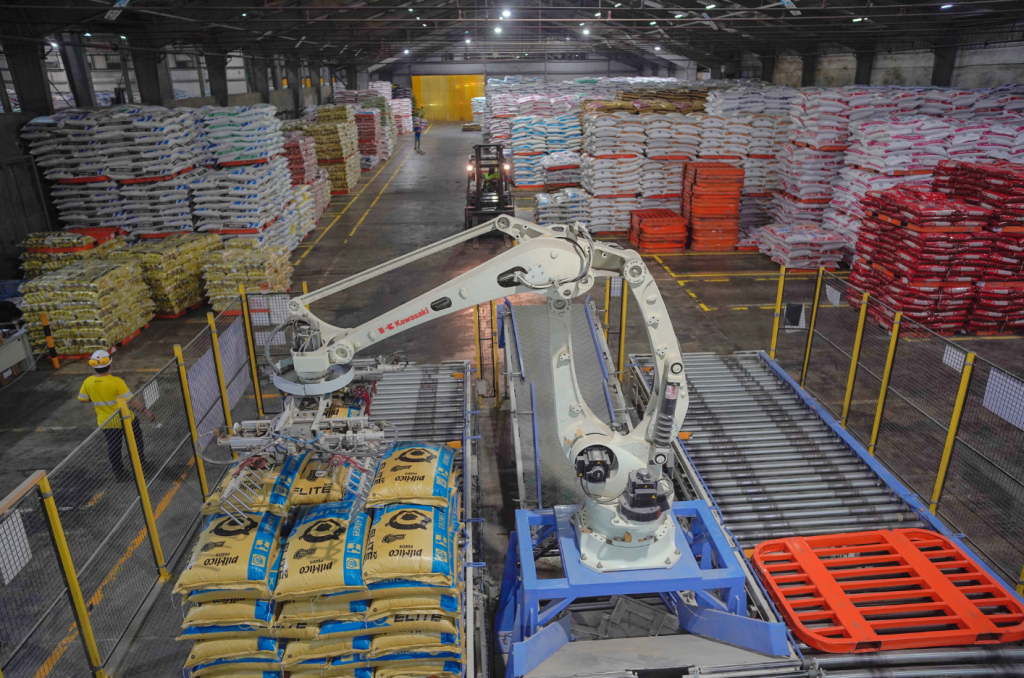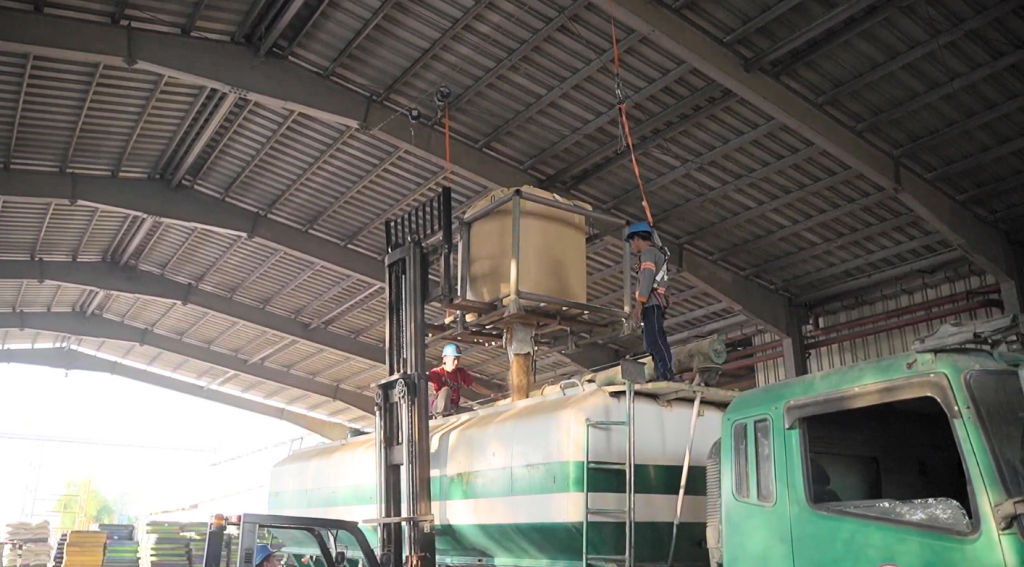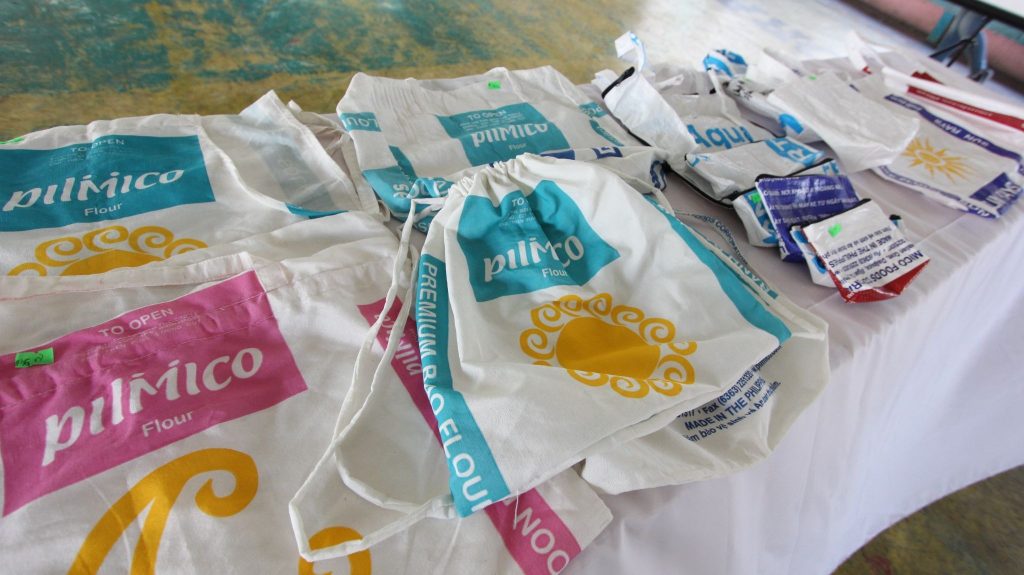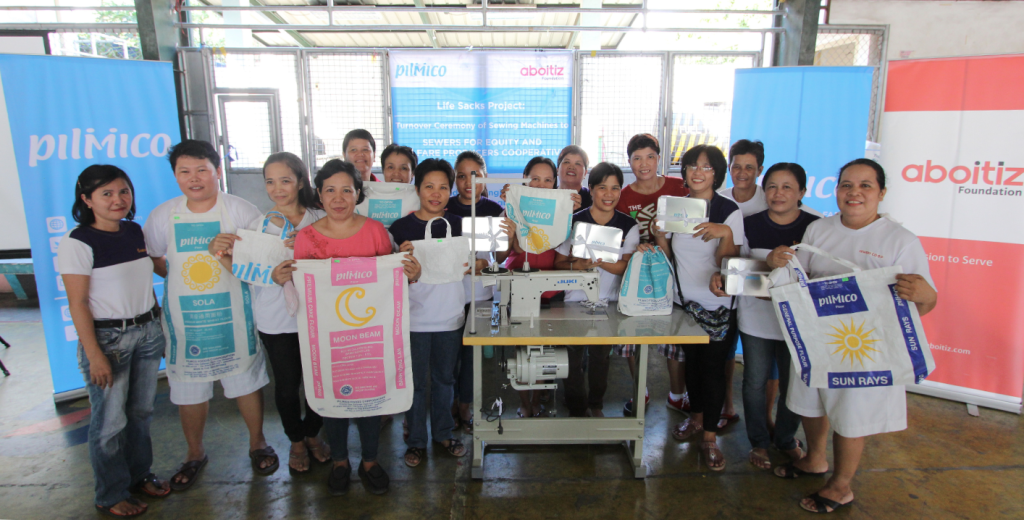Aboitiz Foods is strengthening its approach to managing materials, waste, and resource flows across its mill to meal value chain—delivering a landmark achievement in 2024 by surpassing the Philippines’ Extended Producer Responsibility (EPR) plastic recovery targets by more than 300%. But beyond the headline number, this milestone represents something far more significant: a disciplined transformation of systems and processes.
As part of the Aboitiz Group’s Great Transformation, Aboitiz Foods has been streamlining workflows, simplifying material handling, and integrating smarter operating practices. The result is a more efficient, more responsible, and increasingly circular value chain.

Packaging is the biggest source of plastic use across Aboitiz Foods’ operations, from animal feeds to flour, making it a key focus for sustainability efforts.
Reworking Systems, Not Just Waste
Rather than treating EPR as a compliance exercise, Aboitiz Foods approached it as a process challenge—one that required rethinking material flows, redesigning how packaging enters and exits facilities, and integrating new ways of working across multiple teams.
This shift has become part of the business’ broader effort to streamline operations, drive efficiency, and build responsible practices into its overall operations.
In 2024, Aboitiz Foods achieved 326.42% recovery of its rigid plastic footprint and, 63.8% recovery of its flexible plastic footprint—far surpassing the national recovery requirement of 40%.
But these results did not come from short-term fixes; they came from redesigned systems.
Annacel Natividad, Chief Risk Officer at Aboitiz Foods, shares, “This progress reflects our commitment to doing things right and always striving to do better. #everymeal is our ongoing promise to produce food and feed responsibly. We’re proud that our efforts are not just ticking boxes, but creating real, lasting impact in the way we operate.”
Streamlined Processes From Mill to Meal
Aboitiz Foods identified packaging as a major contributor to its plastic footprint and focused on simplifying the steps associated with its use, transport, and recovery.
- Shifting From Manual Bag Handling to Bulk Loading
One of the biggest process improvements came from transforming how key raw materials—such as soybean meal—are handled. What was once a fully bagged operation now uses fixed-pipe bulk loading systems and reusable one-ton tote bags.

Improved material handling: bulk loading systems replace manual bag operations for raw materials
This shift eliminates thousands of single-use bags annually, reduces waste generation at the source, and improves unloading speed and cleanliness across feed mills. It is a clear example of how simplified processes lead to operational and environmental benefits.
- Reducing Plastic Through Smarter Packaging Design
Several packaging formats across flour and feed products were also redesigned to use 20% less plastic, supporting both waste reduction and cost efficiency.
- Integrated Collection and Upcycling
The company also standardized waste segregation and collection processes and strengthened partnerships with certified recyclers. Used packaging is now upcycled into bags, aprons, shirts, and other items that benefit communities and reinforce circularity.

Used Pilmico sacks are upcycled into reusable bags by local sewing groups and repurposed for CSR and marketing initiatives.
Process Strengthening Beyond Packaging
EPR is only one part of Aboitiz Foods’ broader process optimization effort. Across its operations in Asia, the business is driving improvements in energy, waste, and resource management.
In 2024, Aboitiz Foods also:
- generated 16.2 million kWh of solar power
- utilized 10.3 million tons of biomass energy
- planted 7,600+ trees
- reused, upcycled, or properly disposed of 1,100 metric tons of plastic
- achieved USD 165,000 in savings from waste reuse
These are the kinds of integrated efficiencies the Great Transformation envisions—material, operational, and financial impact delivered through better-designed systems and anchored in our values of Integrity, Responsibility, Innovation, and Teamwork.
Scaling Process Improvements Across Asia
Aboitiz Foods’ commitment to responsible resource management extends beyond its Philippine operations. In Gold Coin Feed Dongguan (China), the team implemented a recycling program that diverted 211 metric tons of packaging waste from landfills in 2024. This initiative also supports low-income community members who earn additional income by collecting and sorting materials.
“Our teams throughout Asia are identifying the most relevant sustainability opportunities for their local operations and communities,” explained Natividad. “At the same time, we’re building stronger internal systems to monitor, track, and eventually scale these efforts. It’s a long road, but this milestone gives us a strong foundation.”
Building a More Circular Future Through Better Processes

Through the Life Sacks project, used Pilmico sacks are repurposed into durable, reusable bags—providing livelihood for sewing groups across the Philippines.
With the EPR Law’s recovery requirement rising to 80% by 2028, Aboitiz Foods is preparing for more purposeful, more integrated process shifts that will strengthen circularity across its value chain. The company is already enhancing its monitoring systems, data tracking, and recovery workflows to ensure steady progress in the years ahead.
“More than compliance, this progress is about taking responsibility,” added Natividad. “We’re doing our part to manage what we produce and to ensure it does not end up harming the communities and ecosystems we are part of.”
Aboitiz Foods recognizes that its sustainability journey is far from over. But by improving the processes closest to its core operations, the company is directly contributing directly to the Aboitiz Group’s broader Great Transformation journey—turning small steps into lasting, meaningful impact.


